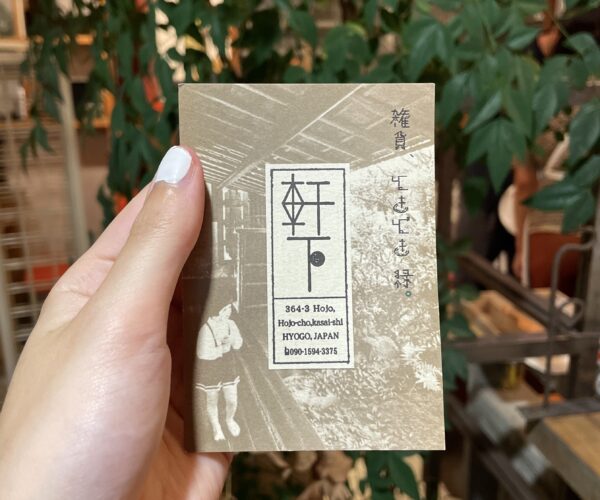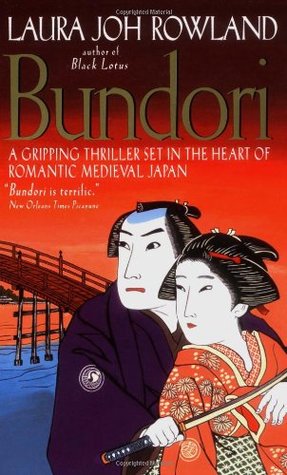This article is a web original
Marco Cian (Hyogo)
A while back, I wrote a review here for the first Sano Ichiro book, Shinju, which I liked so much, I decided to read its sequel, Bundori. And while I enjoyed the overall experience, I’m starting to wonder how much of this enjoyment was due to my own, personal reading history. As someone aware of the utter drek authors like James Clavell were putting out about Japan during this time, simply being better than him is the only real bar Laura Joh Rowland needed to pass for me. However, I’m aware that that bar is so low, you’d have to dig a hole to drink there, and as I was reading Bundori, I started to wonder, is this book actually good, or simply good enough for me?
I can’t say for certain. The flaws I mentioned of Rowland halting action to give exposition remain an issue, and I found myself growing bored more easily as I slogged through another explanation about information I was already aware of. Also, the fact that this information can sometimes be inaccurate continued to irritate me. As I ponder continuing this series, I can’t help but recall Arthur’s Maxim:
The more you overlook small transgressions from an author, the more likely it is that they will eventually come out with something abhorrent to punish you for your indulgence.
and subsequently wonder if I won’t be punished for further indulging Rowland.
More than that, Bundori introduces a new flaw to the series with its portrayal of gay characters. While the affair between Tokugawa Tsunayoshi and his chamberlain Yanagisawa Yoshiyasu was mentioned in passing during the events of Shinju, its main narrative purpose was to demonstrate how Tsunayoshi was weak-willed and easily manipulated by a crafty vizier. Here though, Rowland links homosexuality with decadence. The fact that Tsunayoshi and his inner circle are all indulging in homosexual acts shows that they are hedonistic and weak, unlike Sano Ichiro who is noble and upright (and very, very straight). It doesn’t help that the two gay sex scenes we see in Bundori are grotesque and violent, and easily the most unpleasant scenes in the book.
However, even with these flaws, I found Bundori to be a much more focused book than Shinju. Having set the stage with Shinju, Rowland is now deepening and developing said stage. And reading Bundori made me appreciate how both books use their titular cultural practices to further their themes. On the surface, a shinju seems like an archaism, or a weird, barbaric practice. But even if the titular lover’s suicide was actually a murder in this case, the characters of Shinju demonstrate how there are dreams, ideals, people that we can love and be devoted to so much that even when the pursuit or protection of them will result in certain death, we still go forward, knowing this.
In Bundori meanwhile, while Rowland puts much stock in Bushido (a concept that was not properly codified until the 20th century and was not nearly as important in the Edo period as most Western authors think), she doesn’t make the common narrative mistake of every single Japanese person being devoted to Bushido. Only the bushi class really cares about it, and even among that group there are those who are willing to bend or disregard its principles to get what they want, with each of them having their own reasons and rationalizations for this. Also, perhaps more importantly, Rowland understands that Bushido itself was a noble lie, the product of nostalgia and ennui from a noble class whose nobility stemmed from military prowess, but who were now forbidden from practicing actual warfare. The characters who are devoted to Bushido in Bundori are faced with the cold, depressing fact that they have no idea how to live up to its tenants. And the fact that Sano does properly abide by Bushido’s principles but ends the story bitter, depressed, and alone presents Sano more as a Sam Spade than Sherlock Holmes; someone’s whose principles are too strong to ignore injustice, but who lives in an inherently unjust world, and suffers for it.
Ultimately, I found Bundori something of a curate’s egg, with the good parts outweighing the bad enough to feel an overall enjoyment. But again, I’m not sure if this isn’t simply my own reading history influencing this enjoyment. I think I will try one more book in the Sano Ichiro series. And if things have not improved enough to warrant further reading, then I suppose that will be that.
Marco Cian is a second-year ALT in Hyogo Prefecture. He loves a good mystery, and good historical fiction, and a whole assortment of other genres. So if you’d like to read more of his reviews and recommendations, you can do so at his website here.




